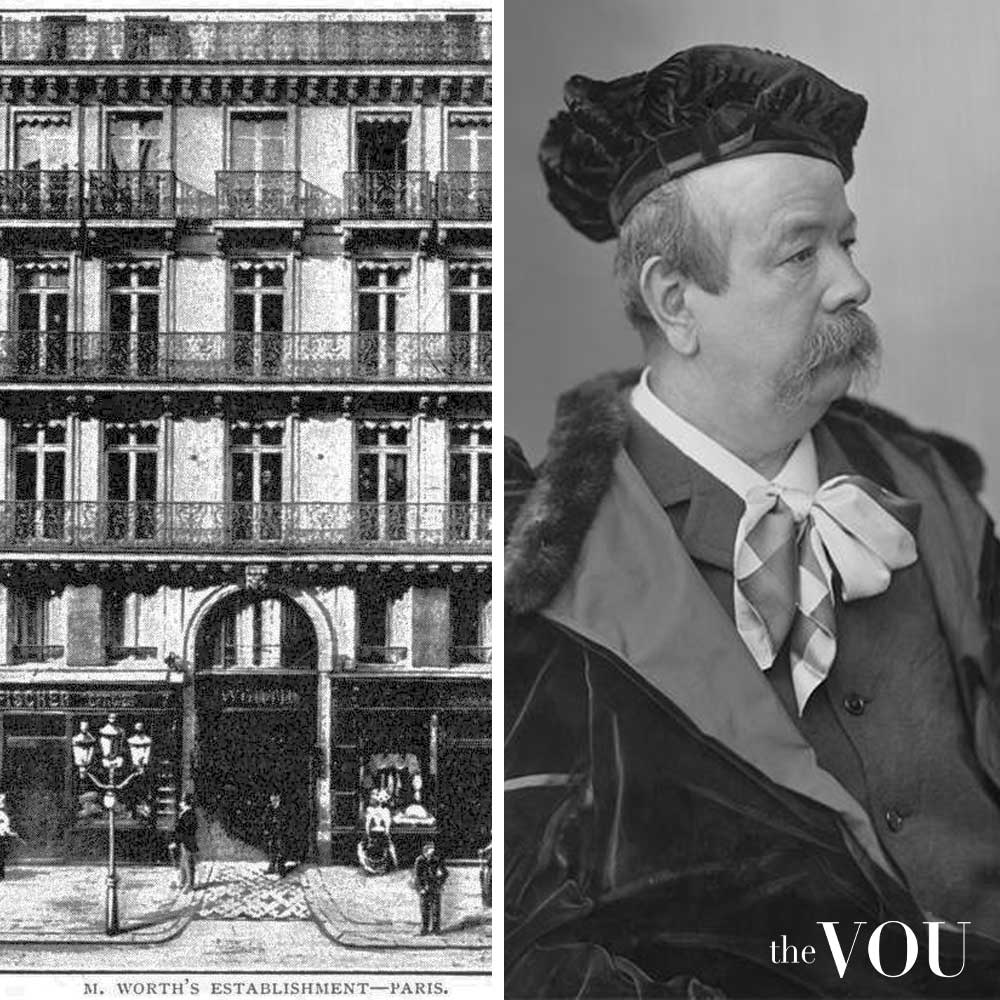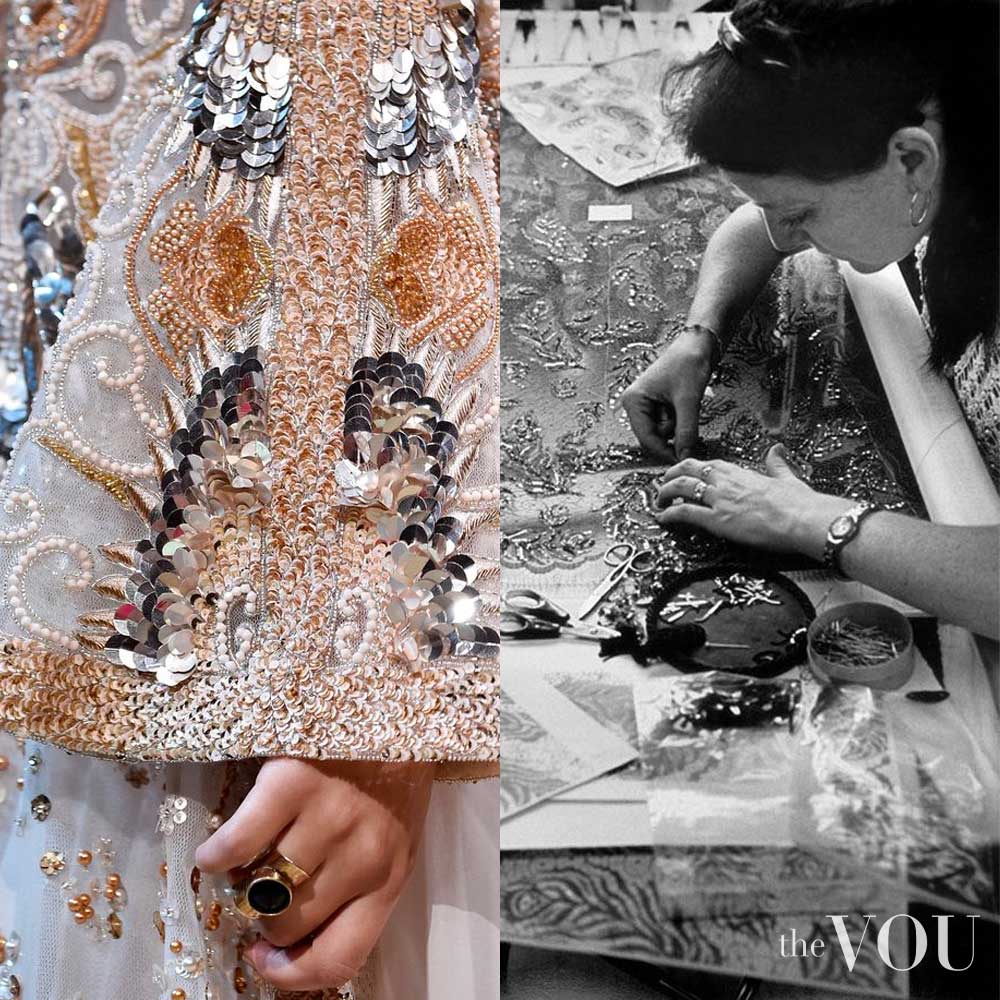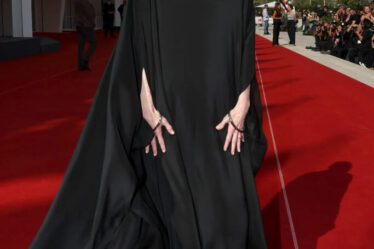
Long considered the apex of high fashion, haute couture fashion has a rich history of stylistic relevance.
Haute couture embodies more than garment mastery but unique fashion heritage, rare legacy, and unmatched prestige.
In this article, we’ll dive deep into haute couture: meaning, origins, main characteristics, price, how it compares with pret-a-porter, celebrities who wear it, and how it impacts the fashion world.
Haute Couture Meaning
Haute couture in fashion describes made-to-order garments at the highest level of artisanal craftsmanship, sartorial experience, and stylistic exclusivity.
The term ‘Haute Couture’ comes from the French ‘Haute’ (high) and ‘Couture’ (sewing) and is pronounced [oht koo-toor].
Haute couture is at the pinnacle of fashion design, where its creations are handcrafted by skilled artisans from the highest quality materials and textiles, with meticulous attention to detail. [1]
Haute couture is not an abstract concept but a legally protected term covering unique manufacturing processes and heritage haute couture brands.
Fashion designers must meet the precise standards set by the governing body, La Chambre Syndicale de la Couture, which codifies what’s to be considered haute couture. [2]
Pierre Balmain, a designer synonymous with Parisian elegance, eloquently described haute couture as the ‘architecture of movement.’ [3]
Designers utilize painstakingly detailed embroidery techniques, plugin methods, and tambour beading to bring their enchanting visions to life.
Haute Couture Origin
The term haute couture first appeared in 1800s France during the Industrial Revolution to describe the latest hand-crafted dresses, footwear, and accessories tailor-made for royalty and upper-class society.
Later, in the 19th century, Charles Frederick Worth – a British Fashion designer – was credited with institutionalizing the craft of ‘high sewing.’
In his Parisian atelier, Worth was one of the first designers to create one-of-a-kind garments tailored to the client’s unique specifications.
Nowadays hailed as the ‘Father of Haute Couture,’ Worth was also the first fashion designer to attach labels to his creations, emphasizing the importance of the designer as an artist and innovator, a radical idea at the time. [4]
In 1868, the ‘Federation de la Haute Couture et de la Mode‘ (FHCM) was founded in Paris to maintain and preserve the highest standards of fashion craftsmanship.
With strict requirements regarding the art of couture, FHCM granted the official recognition of haute couture design to an exclusive few listed on its official website as FHCM members.
Throughout the years, haute couture has grown to include a more comprehensive selection of the highest quality fashion and contemporary design pieces of a unique design process.
Contemporary haute couture designers are embracing the benefits of technological innovation.
Now part of the design process, CAD design and 3D printing offer harmonious blends of tradition and modernity. [5]
Haute Couture’s Main Characteristics
1. Expertise
According to Didier Grumbach – a prestigious figure in the world of fashion as the co-founder of Saint-Laurent Rive Gauche with Yves Saint-Laurent and Pierre Berge – the creation of haute couture garments is complex and laborious, requiring legions of skilled artisans and sewers and over 700 hours of work. [6]
2. Exclusivity
Exclusivity is a cornerstone of haute couture creations, as each garment is an exclusive artwork tailored to the client’s exact measurements. [7]
3. Quality
From fabrics woven with gold threads to custom-developed dyes and hand-beaded embellishments, the materials used in haute couture are of an incomparable quality, sourced from the rarest, most exquisite origins. [8]
Haute Couture Price
Haute couture prices start around $20,000 and can escalate to astronomical sums—sometimes exceeding $100,000 for more intricate designs. [9]
In rare cases, haute couture dresses can cost millions of dollars, as was the case of Christian Dior’s two million USD form-fitting chartreuse column gown, worn by Nicole Kidman at the 1997 Oscars.
However, haute couture creations – clothes, footwear, accessories – are monumental investments.
Reflected on the high cost of quality craftsmanship, haute couture designers create stunning and one-of-a-kind garments using only the finest textiles, with a single garment sometimes taking a team of 8-10 designers close to 700 hours to complete.

Prices of coveted designs from exclusive haute couture designers range from a few thousand dollars well into the hundreds of thousands of dollars.
As highly complex, elaborate creations, haute couture prices vary according to the designer’s history, design intricacy, and even the types of fabrics.
Is Haute Couture Profitable?
Despite the obsessive attention to detail, material quality, long working hours, and lofty price tags, haute couture creations rarely generate profits.
The real value of haute couture lies in the creations’ ability to boost a fashion house or designer’s prestige, which drives sales in other divisions, such as ready-to-wear and fragrances. [10]
Haute Couture vs Pret-a-Porter
While haute couture pieces are custom-made for high-profile clients, Pret a Porter (Ready-to-Wear) designs are mass-produced and made available to the general public.
Haute couture creations are tailored to the client’s unique needs and body measurements, Whereas Pret a Porter garments are designed in standard sizes.
Creating haute couture mandates hand-sewing by skilled artisans, while the manufacturing of Pret a Porter involves machines and other automatic systems. [11]
Pret-a-porter comprises clothing lines for those looking to indulge in haute-couture-like fashion but without the made-to-order heart-breaking price tags.
A blend of haute couture designs and pret-a-porter lines from Valentino, Versace, and Fendi Couture is often showcased on the red carpet, at political events, and at other grand functions.
Driven by a 20th-century generation of designers like Emanuel Ungaro, Alexis Mabille, Alexandre Vauthier, Julien Fournie, Giambattista Valli, and Antonio Grimaldi, one-of-a-kind evening garments evolved into an industry of shoes, accessories, and even perfumes.
Haute Couture Buyers
The bulk of haute couture clients comprises celebrities, royals, and high-net-worth individuals who are not merely buying garments but invest in pieces of art that can reflect their identity and status. [12]
As haute couture pieces are made to order, each creation is custom-made for a given client.
Given the prohibited prices to create genuine haute couture pieces, some of the most common haute couture buyers are celebs and royals.
The stunning and unique nature of haute couture clothing lends itself to a premier choice of wedding attire and other formal occasions.
Similarly, those who work in industries where formal attire is necessary regularly often elect for haute couture designs from designers such as Armani and Stephane Rolland.
Haute Couture Impact
Enchanting every year, right from the world’s fashion capital, Paris Haute Couture Week ensures the haute couture market triumphs as the pinnacle of the fashion industry.
Such classic couturiers revolutionized how clothing is designed and worn by creating new silhouettes for bodies, pushing the boundaries of what was understood as fashion.
Haute couture has inspired generations of fashion designers and continues to be universally held as the highest achievement in fashion craftsmanship.
Haute couture embraces the best in charming design and couture sewing to deliver the world’s most exquisite, enigmatic, and expensive clothing.
Driven by classic Parisian garments of rare inspiration and ingenuity, haute couture designers (couturiers) continue expanding the horizons of high fashion.
Nowadays, a couturier’s unique style and expert skill are the determining factors in deciding if the fashion designer deserves the title.
Steered by traditional and modern haute couture, design houses like Schiaparelli, Adeline Andre, and Frank Sorbier showcase cutting-edge designs, placing the creative bar unflinchingly high.
Key Takeaways
Just because a brand has the word couture in its name – Juicy Couture, I’m looking at you – it doesn’t mean it is a haute-couture house.
Yet, with movies and books describing the journeys of Chanel, Dior, McQueen, Gucci and Schiaparelli, the understanding of haute couture is rising.
Weekly Newsletter
Secrets for a Wealthy, Successful, and Confident Look
Professional Styling Advice
Are you looking to improve your fashion style and would like to try Haute-Couture creations?
The VOU’s styling packages provide personalized styling advice based on your current way of dressing, preferred outfits, colors, aesthetics, age, gender, body shape, location, and event you seek to attend.
Your dedicated stylist will meticulously select essential garments, footwear, and accessories to craft a wardrobe that complements and enhances your style.
Take advantage of this unique opportunity to experience a transformative fashion adventure.
Bibliography
[1] Steele, V., (2003). Fashion, Italian style. Yale University Press.
[2] Pouillard, V., (2016). Managing fashion creativity. The history of the Chambre Syndicale de la Couture Parisienne during the interwar period. Investigaciones de Historia Económica-Economic History Research, 12(2), 76-89.
[3] Pierre Balmain. Britannica.
[4] Krick, J., (2004). Charles Frederick Worth (1825–1895) and the House of Worth. Heilbrunn timeline of art history, The Metropolitan Museum of Art.
[5] Seymour, S., (2008). Fashionable technology: The intersection of design, fashion, science, and technology. New York: Springer.
[6] Grumbach, D., (2023). History of International Fashion. Interlink Books.
[7] Steele, V., (2017). Paris fashion: a cultural history. Bloomsbury Publishing.
[8] Wilson, E., (2020). Adorned in dreams: Fashion and modernity. Bloomsbury Publishing, Revised and Updated Edition.
[9, 10] Thomas, D. (2007). Deluxe: How luxury lost its luster. Penguin.
[11] Agins, T., (2006). The end of fashion: How marketing changed the Clothing Business Forever. New York: Harper Collins Publishers.
[12] Crane, D., (2012). Fashion and its social agendas: Class, gender, and identity in clothing. University of Chicago Press.



